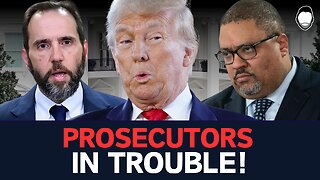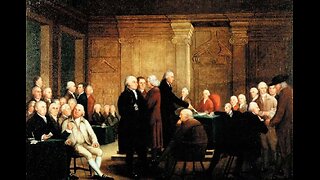A.D. 751 S. Zacharias PP. I Mandavit Pippino [Quotatio Brevis Ad Fontes] #quotes
A.D. 751 S. Zacharias PP. I Mandavit Pippino [Quotatio Brevis Ad Fontes] #quotes
http://zazzle.com/ProVaticanus
Pepin the Short (French: Pépin le Bref; c. 714 – 24 September 768), also called the Younger (Ger. Pippin der Jüngere), was King of the Franks from 751 until his death in 768. He was the first Carolingian to become king.
The younger was the son of the Frankish prince Charles Martel and his wife Rotrude, Pepin's upbringing was distinguished by the ecclesiastical education he had received from the monks of St. Denis. Succeeding his father as the Mayor of the Palace in 741, Pepin reigned over Francia jointly with his elder brother Carloman. Pepin ruled in Neustria, Burgundy, and Provence, while his older brother Carloman established himself in Austrasia, Alemannia, and Thuringia. The brothers were active in suppressing revolts led by the Bavarians, Aquitanians, Saxons, and the Alemanni in the early years of their reign. In 743, they ended the Frankish interregnum by choosing Childeric III, who was to be the last Merovingian monarch, as figurehead king of the Franks.
Being well disposed towards the church and papacy on account of their ecclesiastical upbringing, Pepin and Carloman continued their father's work in supporting Saint Boniface in reforming the Frankish church, and evangelizing the Saxons. After Carloman, who was an intensely pious man, retired to religious life in 747, Pepin became the sole ruler of the Franks. He suppressed a revolt led by his half-brother Grifo, and succeeded in becoming the undisputed master of all Francia. Giving up pretense, Pepin then forced Childeric into a monastery and had himself proclaimed king of the Franks with support of Pope Zachary in 751. The decision was not supported by all members of the Carolingian family and Pepin had to put down a revolt led by Carloman's son, Drogo, and again by Grifo.
As king, Pepin embarked on an ambitious program to expand his power. He reformed the legislation of the Franks and continued the ecclesiastical reforms of Boniface. Pepin also intervened in favour of the papacy of Stephen II against the Lombards in Italy. In the midsummer of 754, Stephen II anointed Pepin afresh, together with his two sons, Charles and Carloman. The ceremony took place in the Abbey Church of St. Denis, near Paris, and the Pope formally forbade the Franks ever to elect as king anyone who was not of the sacred race of Pepin. He also bestowed upon Pepin and his sons the title of 'Patrician of Rome'. Pepin was able to secure several cities, which he then gave to the Pope as part of the Donation of Pepin. This formed the legal basis for the Papal States in the Middle Ages. The Byzantines, keen to make good relations with the growing power of the Frankish empire, gave Pepin the title of Patricius. In wars of expansion, Pepin conquered Septimania from the Islamic Umayyads, and subjugated the southern realms by repeatedly defeating Waiofar and his Gascon troops, after which the Gascon and Aquitanian lords saw no option but to pledge loyalty to the Franks. Pepin was, however, troubled by the relentless revolts of the Saxons and the Bavarians. He campaigned tirelessly in Germany, but the final subjugation of these tribes was left to his successors.
Pepin died in 768 and was succeeded by his sons Charlemagne and Carloman. Although unquestionably one of the most powerful and successful rulers of his time, Pepin's reign is largely overshadowed by that of his more famous son, Charlemagne.
A.D. 751 S. Zacharias PP. I mandavit Pippino quod «melius sibi videri illum regem vocari, qui potestatem haberet, quam illum, qui sine regali potestate manebat».
Έτος Κυρίου 751: Ο Πάπας Άγιος Ζαχάριος ο Πρώτος έδωσε εντολή στον Πεπίνο γιατί «είναι καλύτερο να λέγεται εκείνος που κρατά την εξουσία του Βασιλιά στα χέρια του, παρά έναν που μένει χωρίς εξουσίες».
A.D. 751: Pope St. Zachary I mandated to Pepin because [quote]«it is better to call the person who holds the power of the King in his hands, rather than one, who remains without powers»[end quote].
An du Seigneur 751 : Pape saint Zacharie 1er mandaté à Pépin car « il vaut mieux appeler celui qui détient le pouvoir du Roi entre ses mains, plutôt que celui qui reste sans pouvoirs ».
Año del Señor 751: El Papa San Zacarías I encomendó a Pipino porque «más vale llamar al que tiene en sus manos el poder del Rey, que al que se queda sin poderes».
FONTES: Reginonis Prumiensis Abbatis Chronica: Liber de gestis regum Francorum, Ann. 749-750; J.P. Migne, Patrologia Latina (Patrologiae Cursus Completus. Series Latina), Tom. CXXXII, Col. 47B.
#PopeZachary #Pepin #Childeric #Vatican #PontificalStates #Byzantines #RomanEmpire #Roma #InternationalLaw #Italia #France #Alliance #mandatum #ITA #Lombards #Italy #Franks #Supremacy #Papacy #CatholicChurch #InternationalAffairs #Magisterium #machiavelli #Politics #Legitimacy #DidYouKnow #Latin #Greek #French #Spanish #English #ThePrince #Briefs #edu
-
 LIVE
LIVE
Kim Iversen
1 hour agoAzov Battalion Enacted a Silent Coup in Ukraine | Jack Posobiec: The Secret History Of Communist Revolutions
1,891 watching -
 LIVE
LIVE
The Nima Yamini Show
16 minutes agoMilo Yiannopoulos X Nima Yamini
521 watching -
 DVR
DVR
Robert Gouveia
4 hours agoJack Smith in DANGER; Bragg's BIG Sentencing PROBLEM; Classified Docs DISMISSAL Fight
12.3K35 -
 LIVE
LIVE
The StoneZONE with Roger Stone
7 hours agoKash Patel Joins Roger Stone To Talk About The Best Week In Donald Trump's Life | The StoneZONE
1,967 watching -
 DVR
DVR
Edge of Wonder
5 hours agoIs Japan’s “Atlantis” Yonaguni Monument Man-Made? New Evidence Emerges
1.55K1 -
 15:00
15:00
CarbonTV
19 days agoDECIVILIZED - CAMP LIFE
17.2K14 -
 54:46
54:46
RealitySurvival
1 hour agoWW3 Has Begun! Global Prepper SITREP - Russia and China and Iran Oh MY!
5.55K2 -
 LIVE
LIVE
Quite Frankly
7 hours ago"Declaration Day & Wide Open Lines" 7/2/24
1,361 watching -
 59:47
59:47
Stephen Gardner
3 hours ago🔴 Ex-CIA: Putin THREATENS Biden after US Guided Attack on Russia - Ukraine messed up!!
17.7K64 -
 2:04:30
2:04:30
vivafrei
7 hours agoSCOTUS Immunity Ruling! Dems in Full Projection Mode! Biden Has Always Been Evil AND MORE! Viva Frei
76.6K154